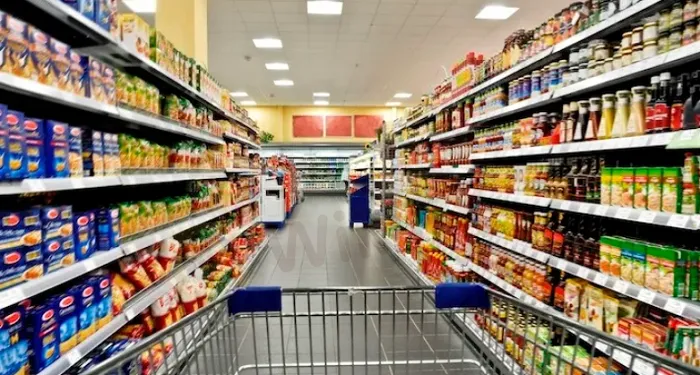简体中文
繁體中文
English
Pусский
日本語
ภาษาไทย
Tiếng Việt
Bahasa Indonesia
Español
हिन्दी
Filippiiniläinen
Français
Deutsch
Português
Türkçe
한국어
العربية
Nigerians spend over a $1 billion on beverages in 6 months
Abstract:Nigerians spent over a billion dollars on beverages such as alcoholic and non-alcoholic drinks in the first half of 2022.
Nigerians spent over a billion dollars on beverages such as alcoholic and non-alcoholic drinks in the first half of 2022.

This is according to data extracted from the financial statements of some of the largest beverage-making companies in the country that are listed on the NGX, the countrys premier stock exchange.
Brewery giants, Nigerian Breweries, Guinness, and International Breweries all reported double-digit growth in their revenues as Nigerians guzzled their products despite a dip in purchasing power and galloping inflation. Non-alcoholic beverage makers such as Nestle, Cadbury and Friesland Campina also reported similar revenue growth as Nigerians drank more chocolate drinks.
These companies between them sell some of the biggest beverage brands consumed by Nigerians. For example, Nigeria Breweries sells Star and Maltina, while Guinness sells Guinness Stout, Orijin and Malta Guinness. Nestle sells Milo Nescafe, and Golden Mourn. FrieslandCampina is the maker of Peak Milk and Three Crowns.
Over half a trillion generated
A cursory analysis of the results of the companies under review shows total revenue generated from beverages alone stood at N763.9 billion as against N587.5 billion reported a year earlier.
The 28.5% growth in beverage revenue over the last one year indicates how strong demand still is for beverages despite cost pressures arising from taxes and price increases.
At N593.2 billion for the first half of the year alone, the companies are on track to top a trillion in beverage sales this year alone.
This result excludes over a dozen larger beverage makers who are not quoted on the Nigerian Exchange.
This suggests the actual revenue in the first half of this year will be much higher when added to the revenue generated by the 5 beverage giants.

Nigerians appear to spend most of their money on beer in the first half of the year helping the likes of Nigeria Breweries, Guinness, and International Breweries to a combined revenue of N483.1 billion as against N379.2 billion same period in 2021.
Nestle also reported a significant rise in beverage sales, reporting a sale of N90 billion up from N70.2 billion. FrieslandCampina which makes milk products also saw its revenue boosted from N125.7 billion to N170.7 billion in the first half of the year.
What is driving the revenues?
Reports from some companies indicate the major driver of revenue growth over the last year has been significant adjustments to prices.
For example, Guinness reported it had price adjustments in nearly all its categories with Beer and Malt drinks increasing by 29% and 37% respectively.
According to Nigeria Breweries, the increase in operating profit and profit after tax was driven “mainly by top-line growth resulting from our pricing strategy and better mix.”
Other companies echoed similar sentiments in some of their interactions with investors and analysts.
A survey of some distributors of beverages who spoke to Nairametrics also confirm reliance of price adjustments to boost sales.
Some opine that despite the hike in prices Nigerians still purchase beverages for parties, events and for home use.
Weakening Purchasing Power: However, the companies might find it harder to rely on price adjustment to boost revenues as the economy bites harder for Nigerians. Some of the companies are already reporting strained demand evident by volume dips.
Guinness for example reported it was seeing “deceleration” as Nigerians see their disposable income shrink under the weight of rising inflation, exchange rate crisis and increase in fuel and diesel costs.
Nigeria Breweries also stated that the growth they experienced was “in the context of a very challenging operating environment.”
More headwinds: Latest data from the National Bureau of Statistics suggest Nigerias inflation rate rose by 19.6% in July. Food and non-alcoholic beverages at 21.9% and alcoholic beverages at 17.9%.
With inflation on the rise, beverage companies are likely to face higher cost inputs that could hurt margins down the line.
All of the companies under review reported double-digit growth in the cost of sales due to the high cost of raw material inputs.
They also face high finance cost due to foreign exchange challenges despite borrowing at fairly cheap interest rates.
Nigeria Breweries again captured the challenges succinctly.
“Increase in cost of sales was due to rise in commodity prices. Marketing, distribution and administration expenses were driven by the increase in commercial activities, rising diesel prices and higher wages arising from collective labour agreements. Although interest expenses were lower, the net finance cost was higher due to foreign exchange losses arising from a higher cost of meeting foreign obligations to overseas partners.”
Disclaimer:
The views in this article only represent the author's personal views, and do not constitute investment advice on this platform. This platform does not guarantee the accuracy, completeness and timeliness of the information in the article, and will not be liable for any loss caused by the use of or reliance on the information in the article.
WikiFX Broker
Latest News
Germany's Election: Immigration, Economy & Political Tensions Take Centre Stage
WikiFX Review: Is IVY Markets Reliable?
IG 2025 Most Comprehensive Review
ED Exposed US Warned Crypto Scam ”Bit Connect”
Top Profitable Forex Trading Strategies for New Traders
EXNESS 2025 Most Comprehensive Review
Currency Calculator






